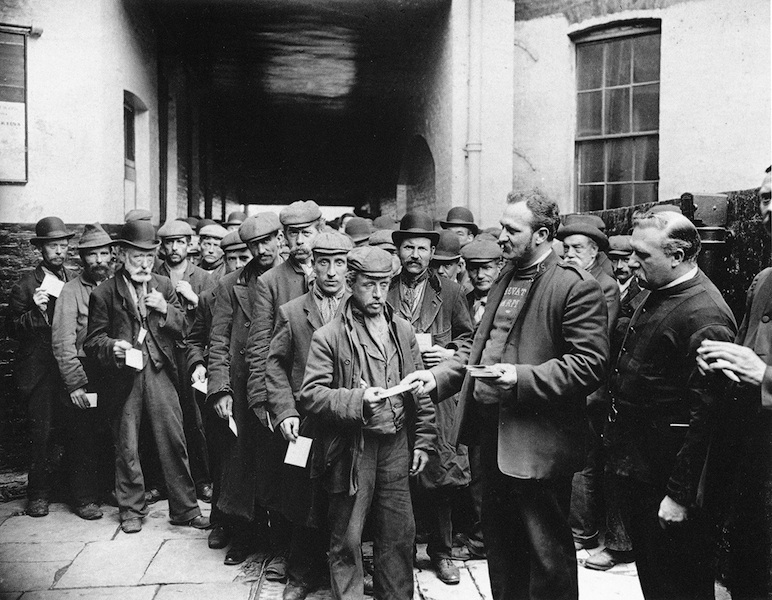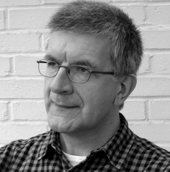
Court yard, Salvation Army barracks, London, by Jack London, 1902. Collection: Huntington Library
At first glance one might easily overlook a telling detail in this picture. Many of the men standing in line at a Salvation Army barracks in London, in 1902, are small. They probably didn’t get enough to eat as children in poor families, and their bodies haven’t developed to their full potential stature. Here, after a night sleeping rough in the city wherever they could snatch a few winks, constantly moved on by the police, the men have waited for hours for the chance of a free breakfast. The three Salvation Army “soldiers” taking their tickets, on the right, are noticeably bigger.
The photographer is the American writer Jack London (1876-1916), and the picture appears, along with many others he took, in his book The People of the Abyss, first published in 1903. London clothed himself in the ragged garb of a homeless man and went undercover in the East End of London for several weeks to experience—“with an attitude of mind which I may best liken to that of the explorer”—the miserable lives of the unemployed, the impoverished, and the permanently hungry. He is scandalized by what he discovers and the book is guaranteed to appal contemporary readers. Hundreds of thousands lived in abject squalor and desperation only a century ago, in the capital city of a country with a global empire and the wealth to house and feed everyone, if it had cared. In a chapter titled “The Hunger Wail,” a scrawny young man tells London about the hardships of his childhood. “I am undersized, and I haven’t the stamina of my dad. It was starved out of me.”
London’s prowess as a self-taught photographer and roving photojournalist is still unknown to many familiar with him mainly through the children’s classic The Call of the Wild. The Huntington Library in San Marino, California holds about 10,000 of his pictures, including those from The People of the Abyss, along with his papers. The publication of Jack London, Photographer in 2010 by the University of Georgia Press was a significant step in opening up his photographic archive for appraisal.
At the Salvation Army barracks, London stuck around for breakfast, finally receiving some slices of bread at 11am. He used a compact folding camera, but it would have been impossible to hide what he was doing, and ownership of a costly device wouldn’t have tallied with his claim to be destitute. Perhaps London took the pictures, dressed in his usual clothes, on another day. On this particular Sunday, he declined to stay to hear the Salvation Army service, a condition of receiving the food, made his excuses to indignant officials, and left. He had the good fortune of a better life elsewhere; the people he met sinking in the abyss were not so lucky.

